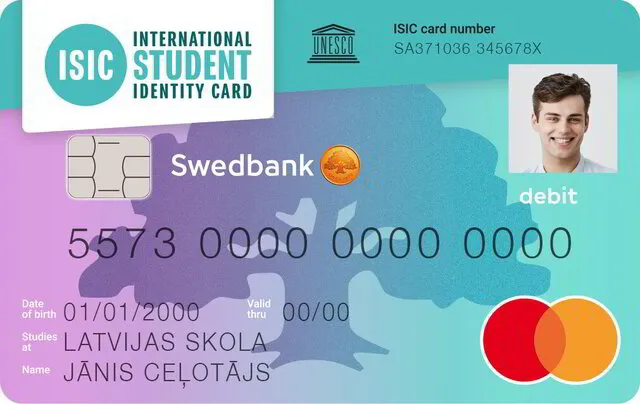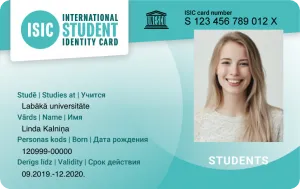Student Accomodation
We suggest the following accommodation opportunities for our students:
1Home Student Hotel
The hotel offers accommodation for international students and interns in shared apartments.
The hotel is located in the area of student town, just across the street of Transport and Telecommunication Institute (TSI), Information Systems Management Institute (ISMA), The University of Economics and Culture (EKA) and Baltic International Academy (BSA).
1Home Student Hotel is close to the city center; it takes only 10 minutes to get there by public transport.
The hotel offers:
- Shared kitchen
- Laundry
- Café
- Free time room
- Weekly room cleaning
- In every room you will find:
- Bathroom
- Curtains
- WiFi
- Chair
- Wardrobe
- Table
- Fresh bed sheets
Address: Lauvas street 2, Riga LV-1003
Hostel POSH
The hostel is located in the very centre of Riga, near the Central market. You can easily reach the college on foot in 20-30 min. There is a special price for our students:
100 EUR per person a month for 4 and 6 seated rooms.
The hotel offers:
- In Shared bathroom
- Shared kitchen
- Day room
- Laundry
- In every room you will find:
- Desks
- Closets
Address: Pupolu street 5, Riga LV-1050
VALDEMARA RESIDENCE
It is the most demanded hotel by our students because you can get from there to us in just 1 minute! This wonderful hotel has only 29 rooms, which are very cozy and nice. There is everything for a pleasant students’ life in Riga. The hotel offers special prices for our students:
Double room – 190 EUR per person per month.
Triple room – 170 EUR per person per month.
Four-seated room – 155 EUR per person per month.
The hotel offers:
- Day room with TV and board games
- Shared kitchen
- Shared bathroom
- Laundry
- In every room you will find:
- WiFi
- Closet
Address: Krišjāņa Valdemāra street 20, Riga LV-1010
Hostel ATRIUM
Student hostel ‘Atrium’ is famous for its coziness, students who live there call it their second home. The hostel offers special prices for our students:
- Double room – 125 EUR per person per month
- Six-seated room – 100 EUR per person per month.
The hostel offers:
- Shared kitchen
- Shared bathroom
Address: Slokas street 28, Riga LV-1048.
ISIC card
After receiving residence permit, you can open a bank account in any Latvian bank and apply for an ISIC card.
The ISIC (International Student Identity Card) is the only internationally recognised identification card for full-time and part-time students used by 5 million youths in 130 countries around the world every year.
Apply for your ISIC and you will get:
• An internationally recognised official student identification card
• Discounts at 550 sites in Latvia and 150,000 sites around the world
Choose the ISIC best suited for you:
After receiving residence permit, you can open a bank account in any Latvian bank and apply for an ISIC card.
The ISIC (International Student Identity Card) is the only internationally recognised identification card for full-time and part-time students used by 5 million youths in 130 countries around the world every year.
Apply for your ISIC and you will get:
• An internationally recognised official student identification card
• Discounts at 550 sites in Latvia and 150,000 sites around the world
Choose the ISIC best suited for you:
Swedbank ISIC
Card features:
- Your official student identification card
- Discount card
- Payment card for payments at stores and online, as well as for receiving your scholarship
- Card with contactless payment function and an easy-to-use mobile app
Price: First year for free, every following year EUR 5.50 per year
Where to apply: swedbank.lv/jauniesiem
What to submit:
- ID
- study reference
ISIC
Card features:
- Prove your student status around the world
- Take advantage of benefits for students for public transit, textbooks, cinema tickets and at clothing stores throughout Latvia
Price: The card costs EUR 7.10
Where to apply: https://isic.lv/lv/pieteikties/
What to submit:
- ID
- study reference
Erasmus+
Riga Management College offers the opportunity to participate in Erasmus+ program.
It is a great chance for students to explore some countries and gain valuable experience. At the moment, the college cooperates with the following countries: Spain, Italy, Turkey, Portugal and Lithuania.
Since we are a developing institution, we are working hard to expand our connections, this expecting to obtain new Erasmus+ destinations in the nearest future.
You are welcome to apply and enjoy this unforgettable experience.
Erasmus+ is the program to support education, training, youth and sport in Europe. Its budget of €14.7 billion will provide opportunities for over 4 million Europeans to study, train, and gain experience abroad.
Education, training, youth and sport can make a major contribution to help tackle socio-economic changes, the key challenges that Europe will be facing until the end of the decade, and support the implementation of the European policy agenda for growth, jobs, equity and social inclusion.
The Erasmus+ Program is designed to support Program Countries; efforts to efficiently use the potential of Europe’s talent and social assets in a lifelong learning perspective, linking support to formal, non-formal and informal learning throughout the education, training and youth fields. The Program also enhances the opportunities for cooperation and mobility with Partner
Countries, notably in the fields of higher education and youth.
Set to last until 2020, Erasmus+ does not just have opportunities for students. Merging seven prior programs, it has opportunities for a wide variety of individuals and organizations. The aim of Erasmus+ is to contribute to the Europe 2020 strategy for growth, jobs, social equity and inclusion, as well as the aims of ET2020, the strategic framework for education and
training.
Erasmus+ also aims to promote the sustainable development of its partners in the field of higher education, and contribute to achieving the objectives of the EU Youth Strategy.
Specific issues tackled by the program include:
- Reducing unemployment, especially among young people.
- Promoting adult learning, especially for new skills and skills required by the labor market.
- Encouraging young people to take part in European democracy.
- Supporting innovation, cooperation.
- Reducing early school leaving.
- Promoting cooperation and mobility with the partner countries.
Erasmus+ is open to many individuals and organizations, although eligibility varies from one action to another and from one country to another.
Individuals can take part in many of the opportunities funded by Erasmus+, although most will have to do so through an organization taking part in the program. The eligibility of individuals and organizations depends on the country in which they are based.
Eligible countries are divided into two groups, Program countries and Partners countries.
Although Program countries are eligible for all actions of Erasmus+, Partner countries can only take part in some, and are subject to specific conditions.
Below you can see the EU countries eligible to participate in the Erasmus+ program:
Austria, Belgium, Estonia, Italy, Portugal,
Bulgaria, Finland, Latvia, Romania,
Belgium, France, Lithuania, Slovakia,
Cyprus, Germany, Luxembourg, Slovenia,
Croatia, Greece, Malta, Spain,
Czech Republic, Hungary, Netherlands, Sweden,
Denmark, Ireland, Poland, United Kingdom.
Some non-EU counties also participate in the program, you can find them below:
- North Macedonia
- Iceland
- Liechtenstein
- Norway
- Serbia
- Turkey
Within the framework of the Erasmus + program, the Riga College of Management has previously cooperated with:
- College of Applied Sciences Lavoslav Ruzicka v Vucovar, Croatia
- Atlantique language courses Biarritz, France
- Vilnus kolegija, Vilnius, Lithuania
The Erasmus+ program is managed by the European Commission, the Education, Audiovisual, and Culture Executive Agency (EACEA), a series of National Agencies in Program countries, and a series of National Offices in some Partner countries.
The European Commission handles the overall management of the program, including:
- Managing the budget
- Setting the priorities
- Identifying the program's targets and criteria
- Monitoring and guiding the implementation
- Follow-up and evaluation of the program
The Education, Audiovisual, and Culture Executive Agency (EACEA) of the European Commission is in charge of managing the centralized elements of the program, including:
- Promoting the program and opportunities
- Launching calls for proposals
- Reviewing grant requests
- Contracting and monitoring projects
- Communicating on results
The EACEA and Commission also carry out studies and research, as well as managing and financing the other bodies and networks supported by Erasmus+. In the EU countries, the Commission entrusts much of the management of Erasmus+ to National Agencies. Outside the EU, and specifically in the field of higher education, this role is filled by the National Erasmus+ Offices.
The Commission provides funding to the National Agencies, who use these funds to manage the program activities. This allows the Agencies to adapt the program to suit their national education, training, and youth systems.
The National Agencies are responsible for:
- Providing information on the program
- Reviewing applications submitted in their country
- Monitoring and evaluating the implementation of the program in their country
- Supporting people and organizations taking part in Erasmus+
- Promoting the program and its activities at a local and national level
These Agencies also support beneficiaries of the program from the application stage to the end of a project. They also work with beneficiaries and other organizations to support EU policy in areas supported by the program.
General Call for Proposals
Every year a General Call for Proposals is published, presenting opportunities for organizations and individuals active in the fields of education, training, youth and sport. In the Call you can find the objectives of the program, an overview of the actions it is divided in, eligibility of potential actors, budget and duration of projects, and submission deadlines for each action. You
can consult the latest Call for Proposals in our Calls section. In addition, some Specific Calls for Proposals are published at a centralized level, through the website of the Education, Audiovisual and Culture Executive Agency (EACEA).


